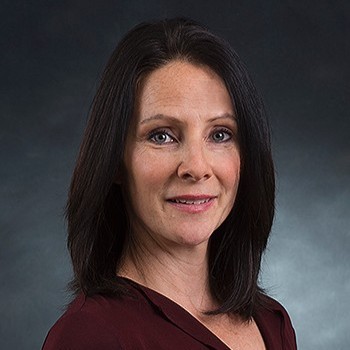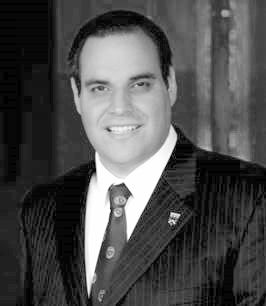What You'll Learn
Climate change is one of the most urgent and complex challenges of our time — impacting ecosystems, economies, food systems, and public health worldwide. As global leaders work toward climate goals set by the United Nations and push for decarbonization, there’s a growing need for professionals who can turn science into action. The Managing for Climate Change Graduate Certificate gives you the tools to respond to this critical moment.
Through this certificate program, you’ll:
- Study how climate change affects the environment, economic systems, food and agriculture, and human health.
- Apply climate science to design strategies that limit environmental impacts.
- Explore climate change mitigation and adaptation strategies.
- Investigate the global impacts and challenges of decarbonization efforts.
- Assess climate change policies, from international agreements to city planning and land use.
- Learn to develop climate adaptation plans.
Certificate Courses
The Managing for Climate Change Graduate Certificate includes four courses: one anchor course and three electives.
Anchor Course
ENVR 216 Climate Adaptation Planning and Policy
This course focuses on developing real-world solutions to current climate challenges. You’ll learn to develop and implement adaptation plans. Building on the 2024 UN Conference of the Parties agenda, the course covers vulnerability assessments, carbon mitigation, and relevant climate policies.
Climate Change Electives (Choose 3 Courses)
You’ll complete three electives, choosing from various courses that examine the science and policy impacts of climate change, emphasizing sustainable systems.
Example courses include:
- ENVR 139 Natural Disasters in a Global Environment
- ENVR 149 Climate Change Policy and Science
- GOVT 1722 The Politics of Climate Change
- ENVR 165 Human Health and Global Environmental Change
This is a new graduate certificate as of Fall 2025. Courses completed before the fall 2024 semester cannot be applied to this graduate certificate.
Searching and Registering for Courses
Available course options vary by term. You can browse options for fall, spring, or summer in the certificate course search within the DCE Course Search & Registration platform.
Faculty
-
![Dustin Tingley]()
Dustin Tingley
Professor of Government, Harvard University
-
![]()
Jennifer Cole
Associate Professor of Liberal Arts, Massachusetts College of Art and Design
Teaches human health and sustainability, and natural disasters
-
![]()
Ramon Sanchez
Chief Knowledge and Innovation Officer, The Alliance for Tribal Clean Energy
Teaches courses on renewable energy, sustainable product design, & innovation
Earning Your Certificate
If you take two courses per semester, you can complete your certificate in 8 months. If you prefer a more flexible pace, you have up to three years to finish. There is no formal application required.
To meet the requirements for the certificate, you must:
- Complete the four certificate courses for graduate credit.
- Earn at least a B grade in each course.
- Complete the courses within three years.
Learn more about pursuing a certificate and the process of requesting your certificate.
Stacking Your Certificate Into a Degree
Stackable credential pathways allow you to earn multiple credentials by completing courses that meet overlapping requirements. In the short term, you can earn your Managing for Climate Change Graduate Certificate. These four courses may count toward either of the following:
This stackable pathway offers an efficient, online, cost-effective way to earn short-term credentials to help fill immediate skill gaps and acquire specialized knowledge while building a foundation for long-term success that showcases your expertise in the field.
Learn how to plan a stackable credential pathway.
Cost
Affordability is core to our mission. When compared to our continuing education peers, it’s a fraction of the cost.
| Our Tuition (2025–26 rate) | $3,440 per course |
|---|---|
| Average Tuition of Peer Institutions | $5,476 per course |
| Average Total Cost | $13,760 |
FAQs
Is a climate change certificate worth it?
Companies and organizations need professionals who can help address the growing environmental challenges that impact their operations. Through this certificate, you’ll develop essential skills in climate adaptation, mitigation, and policy development that are applicable across diverse sectors and regions. With a robust understanding of how to adapt to current and future climate change impacts, you’ll be equipped to make meaningful contributions and adapt to changing policies and priorities.
Will this certificate help me get into climate policy?
Yes, the managing climate change certificate can support a career shift to climate policy. You’ll build a strong foundation in climate science, adaptation planning, and policy analysis. You’ll study how international agreements, local planning, and decarbonization strategies shape real-world decisions — skills that are directly applicable to roles in climate policy.
How does this graduate certificate compare to the Climate Change Professional (CC-P) certification?
The Managing for Climate Change Graduate Certificate offers a comprehensive approach to understanding climate change, focusing on practical applications of climate science to develop adaptation and mitigation strategies that encompasses economic, health, and agricultural systems. The Climate Change Professional (CC-P) certification establishes a standard of proficiency and is suited for validating existing skills for workforce recognition. By contrast, this certificate emphasizes academic learning and policy development. It also provides an academic path to further study, allowing credits to count toward a master’s degree in sustainability. This makes it ideal for those seeking in-depth knowledge and academic advancement in roles like climate policy analyst or sustainability manager.



